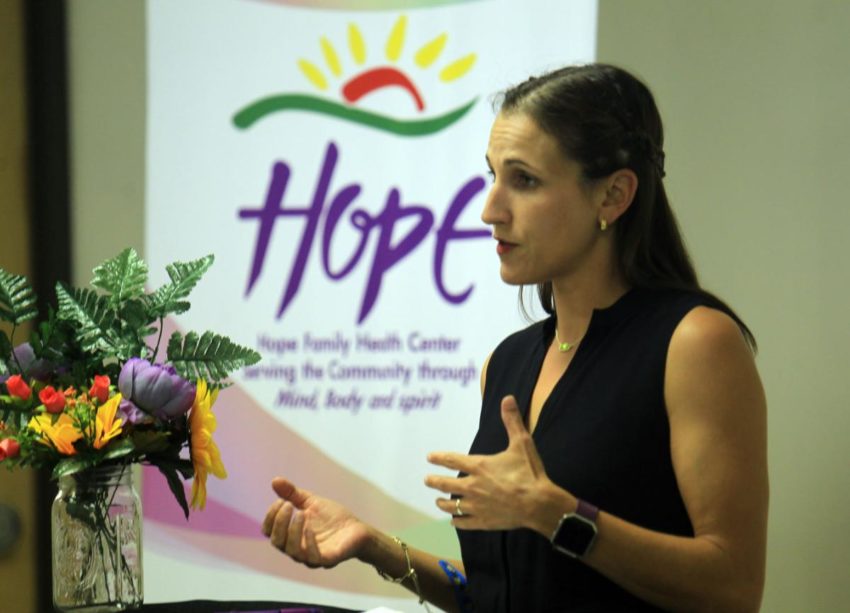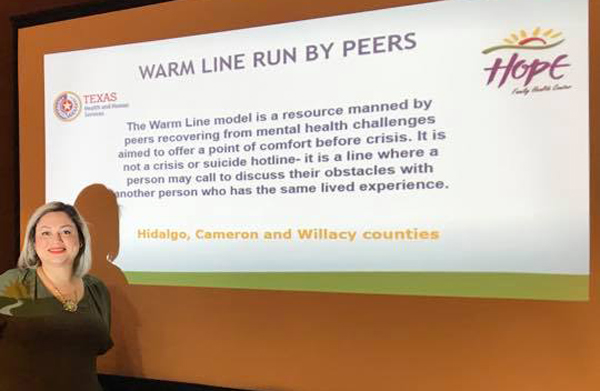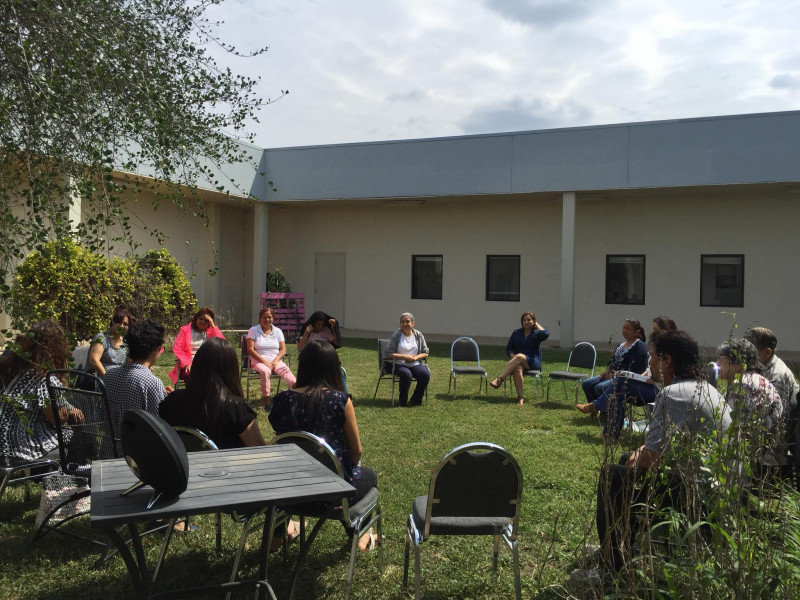
Share On Social!
Struggling with behavioral or mental health issues?
If you’re in the Rio Grande Valley (~90% Latino), there is a phone number you can call to get help.
The Hope Family Health Center in McAllen, Texas has launched a new service: A Peer Run Warm Line.
This resource is for those in the community who are experiencing depression, anxiety, stress, loneliness, or any other non-crisis, non-emergency ailment to their everyday living.
The Warm Line launched on January 21, 2019.
“There may be somebody that will be going through a crisis or close to a crisis and need somebody to talk to and [they’re] isolated and don’t want to call the hospital for help or don’t have the resource,” Rebecca Stocker, leader of Hope Family Health Center in McAllen, told The Monitor.
 “They can call the warm line and speak with someone who has gone through something similar and help them build on their internal resources and move on.”
“They can call the warm line and speak with someone who has gone through something similar and help them build on their internal resources and move on.”
Peer Run Warm Line
The Hope Family Health Center’s Peer Run Warm Line is a new service that is staffed by certified peer support specialists.
Certified peer support specialists are people in recovery who have been trained to listen, offer compassion and validation, and assist callers in connecting with their own internal resources, strengths and personal action plan Warm lines have been proven to reduce stressors leading to suicidality, reduce emergency room visits, and improve the quality of life for those experiencing obstacles, they wrote in an email to Salud America!.
The Warm Line, which is not a crisis line, is a place where individuals suffering from differential mental health issues, like depression and anxiety, can call and have a safe listening ear that prevents the person calling from reaching a crisis.
How ‘Hope Family’ is Promoting Healthier Minds
Latinos are far more likely than their peers to have mental health issues. Many Latinos do not seek treatment, according to a Salud America! Research Review.
Hope Family Health Center is trying to meet these needs.
The center provides many services for the uninsured living in the Rio Grande Valley, which includes Hidalgo, Cameron, Willacy, and Starr counties in South Texas.

Programs include:
- primary medical care
- counseling
- integrated behavioral health
- peer support services
- case management
- wellness programs, like Laughter Yoga, Texercise, and Farmmacy
- Annual mental health training
The line aims to provide “a point of comfort before crisis.” It is possible thanks to Texas House Bill 13, which funded programs to provide mental health services.
“We want to eliminate the stigma on our Latino community about mental health issues and mental health challenges,” Elsa Roman, who received counseling at Hope Family Health Center and later joined them as a certified peer support specialist coordinator, told The Monitor. “We want people to ask for services and to say it is okay not to be okay.”
Other cities have created “warm lines,” too.
San Francisco’s Warm Line offers peer counselors 24 hours a day, seven days a week. The city already offers a suicide prevention hotline and a helpline for referrals to mental health services.
“It is essential to find more ways to address the needs of adults, parents and youth who are experiencing mental health crises but who are not actively contemplating suicide,” said Jo Robinson of San Francisco Department of Public Health, according to a press release. “I believe that having peers answer the Warm Line is an added value.”
Explore More:
Mental HealthBy The Numbers
22
percent
of Latino youth have depressive symptoms, more than any other group besides Native American youth



